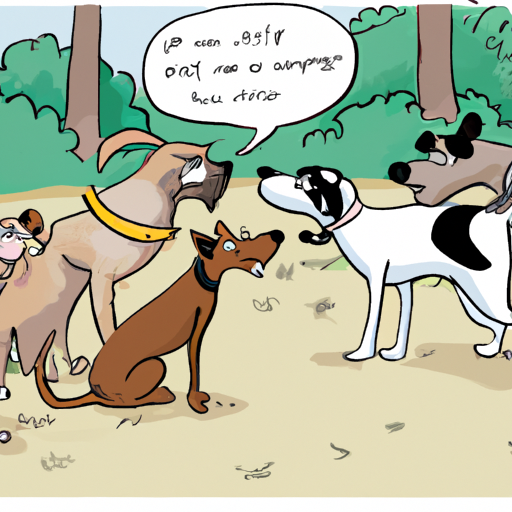Understanding Why Your Dog Barks at Other Dogs
You’re out on a casual walk, enjoying the weather, when suddenly your calm, quiet dog starts barking ferociously at a passing dog. This isn’t the first time it’s happened. Often, your dog seems to be barking at other dogs for no apparent reason. It’s perplexing, isn’t it? But remember, dogs communicate through barks, and these barks could mean a lot of different things. Let’s delve into understanding why this happens.
The Science Behind Barking
Dogs bark for many reasons: to get attention, to show excitement, out of boredom, and even due to fear. According to ethologists, dogs bark as a means of communication. Now, this could be communication with you, other dogs, or even themselves. When your dog barks at other dogs, it could be due to:
- Territorial behavior
- Fear or anxiety
- Overexcitement
- Lack of socialization
Understanding which of these triggers your dog’s barking is the first step in managing the behavior.
Deciphering the Bark
Just like human language, dog barks can mean different things depending on the context, the tone, and the body language.
| Type of Bark | Possible Meaning |
|---|---|
| Rapid, high-pitched barks | Excitement or alarm |
| Continuous, slow barks | Intruder alert or feeling threatened |
| One or two sharp, short barks | Greeting or surprise |
| Prolonged, incessant barks | Loneliness or boredom |
By paying close attention, you can start to understand what your dog is trying to communicate.
Managing Your Dog’s Barking
Now that you’ve understood why your dog barks, let’s discuss how to manage it. Here are some strategies that might help:
- Socialization: Encourage your dog to interact with other dogs in a controlled environment.
- Training: Teach your dog commands like ‘quiet’ or ‘enough’ and reward them for obeying.
- Distraction: If your dog starts barking, distract them with a toy or a treat.
- Consult a professional: If the barking continues, consider consulting a professional dog trainer or behaviorist.
Training Techniques to Curb Barking
Here are some simple training techniques you can try:
- The ‘Quiet’ Command: Start by saying ‘quiet’ in a firm, calm voice when your dog starts barking. Once they stop barking, reward them with a treat or praise.
- Desensitization: Gradually expose your dog to the triggers that cause them to bark. Start from a distance and reward them for staying calm. Slowly decrease the distance over time.
- Counter-Conditioning: Teach your dog to react differently to the triggers. For instance, teach them to sit and stay when they see another dog.
When to Seek Professional Help
If your dog’s barking becomes excessive or aggressive, it might be time to seek professional help. A professional dog trainer or behaviorist can provide you with tailored strategies and techniques to manage your dog’s behavior.
FAQs
Q: Why does my dog bark at other dogs on walks?
A: This could be due to fear, excitement, or territorial behavior. Understanding the cause can help you manage the behavior.
Q: How can I stop my dog from barking at other dogs?
A: Training, socialization, and distraction can all help. If the barking continues, you may want to consult a professional.
Q: Are certain breeds more likely to bark at other dogs?
A: While some breeds may be more vocal than others, any dog can develop this behavior depending on their experiences and training.
Q: Can a dog’s barking at other dogs be a sign of aggression?
A: Sometimes, but not always. Barking can be a sign of fear, excitement, or simply a way of saying hello.
Remember, your dog’s barking is a form of communication. Understanding why your dog barks at other dogs is the first step towards managing the behavior. Be patient, and remember that change takes time. With love, care, and consistent training, you can help your dog feel more comfortable around other dogs.



